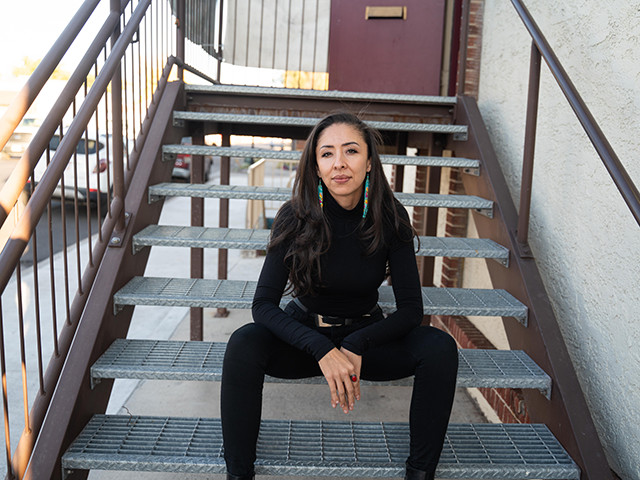A Denver city councilwoman facing a runoff election in June said white-owned businesses should pay reparations for the sins of slavery.
During a business forum, Candi CdeBaca — a Democrat socialist — said the race-based tax could be levied by the business improvement districts, as first reported by 9News. A business improvement district is managed by local business owners, residents, and local government officials and can levy incremental tax increases which are then redistributed in a specific geographic region, according to the U.S. Department of Transportation.
“Capitalism was built on stolen land, stolen labor, and stolen resources,” CdeBaca told the Greater Metro Denver Ministerial Alliance, 9 News reported. “You could be collecting those extra taxes from white-led businesses all over the city and redistributing them to black and brown-owned businesses.”
While a tax levy can be distributed to assist underserved businesses, the tax can’t be applied based on an individual’s skin color. That would be illegal under federal law, but the 37-year-old argued this plan would not be illegal since the taxes levied are “voluntary.”
A spokesperson for Denver’s Department of Finance told 9 News this was false.
“Non-residentially assessed property owners within the BID are required to pay the additional taxes/fees,” said spokesperson Courtney Meihls. “It’s not voluntary.”
Footage of CdeBaca became viral after being picked up by the Libs of TikTok page, garnering the video more than 4 million views. Critics have said this proposal is going too far.
“This is the third time CdeBaca has been targeted by a white nationalist mob, and this is part of a concerted playbook to harass, intimidate, and silence progressives and in particular, marginalized communities,” CdeBaca’s office said in a written statement.
But black urban areas are not the only communities at a disadvantage. The Appalachian Regional Commission considered 38.6% Appalachia counties — a predominant white population — to be economically distressed. These disadvantages include greater geographic isolation, less public transportation, and fewer health screenings and physicians available, as reported in a National Library of Medicine paper.
CdeBaca attributes her idea to the San Francisco Legacy Business Program. Since 2015, the program has redistributed funds to underserved communities, but the funding does not come from taxing only white businesses.

COMMENTS
Please let us know if you're having issues with commenting.